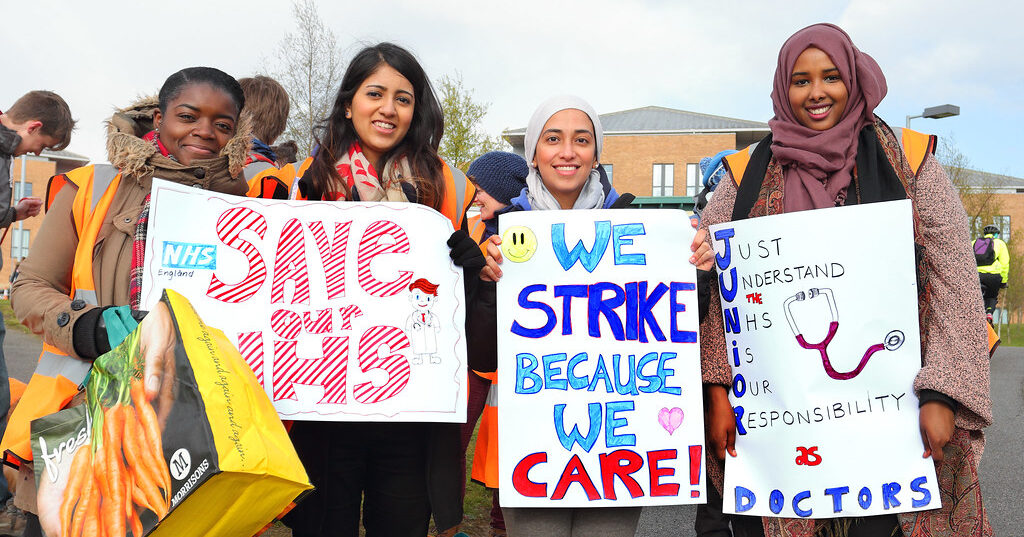

By KD Tait
LABOUR’S SHADOW health secretary Wes Streeting has given another clear indication that health workers will have to step up their campaign to force Labour to fund the NHS properly.
In the run-up to a five-day strike by junior doctors in England, Streeting said he was ‘beyond furious’ with the BMA and demanded doctors abandon their action.
Junior doctors rightly rejected this outrageous demand. Streeting claims he will be on the phone on day one of a Labour government to negotiate with the union.
But health workers should have no confidence in a shadow health minister who takes donations from private health companies and has made no secret that his prescription for curing the NHS is more of the privatisation and short rations that is creating the crisis.
The Tory press are complaining that its ‘not fair’ for junior doctors to strike during an election when the government can’t negotiate. But this dispute has been running for over a year. The Tories calculated that allowing the strikes to go ahead would enable them to blame out of control waiting lists on strikes, instead of on 14 years of underfunding, outsourcing and privatisation.
They know that in all probability it will be a Labour government that will have to negotiate an end to the dispute. That’s why the election is the best time to take action — and focus the minds of voters and Labour leaders on the NHS crisis.
The BMA is demanding a phased 35 percent rise to compensate for the loss of real-terms pay during austerity. In England, the Tories imposed an average pay increase of around 9 percent for 2023/24, while in Scotland, junior doctors accepted 12 percent.
The junior doctors’ position has shifted over time as their union’s position has become more isolated. After a year of strikes, it is likely that an offer by an incoming Labour government of a deal similar to Scotland would be recommended for acceptance by the junior doctors committee.
This would be better than what the Tories are offering but it falls far short of what is needed—and what is possible to get out of a Labour government which promises that only they can be trusted with the NHS.
But winning a real commitment to pay restoration means forcing Labour to find the money, and mounting a wider political campaign to oppose Labour’s plans to solve the crisis on the cheap through privatisation and overtime.
That means fighting for a united front of all the health workers’ unions. The new pay year started in April, but there’s no sign of a pay rise. Unison, Unite and the RCN should put meet a new Labour government with a common proposal for a pay rise that restores pay to 2010 levels—not over five or ten years, but now, when health workers, the health service, and the millions of workers who depend on it, need it.
The division of one million health workers into several professional and general unions is an obstacle to fighting unity. In many workplaces, organisation is so bad that Unite and Unison can’t even get 50 percent of their members to vote in a ballot on industrial action.
The trade union leaders will try to give an incoming Labour government a honeymoon period. The government will try to play divide and rule with the workforce. To overcome this, health workers need to organise in every trust, and across every local authority to put forward their own demands and fight for them.
We can start this by forming joint committees of shop stewards and delegates from each health union in each workplace, to organise solidarity with the junior doctors strikes and discuss a platform of joint demands and the common action we’ll need—whoever wins on 4 July.